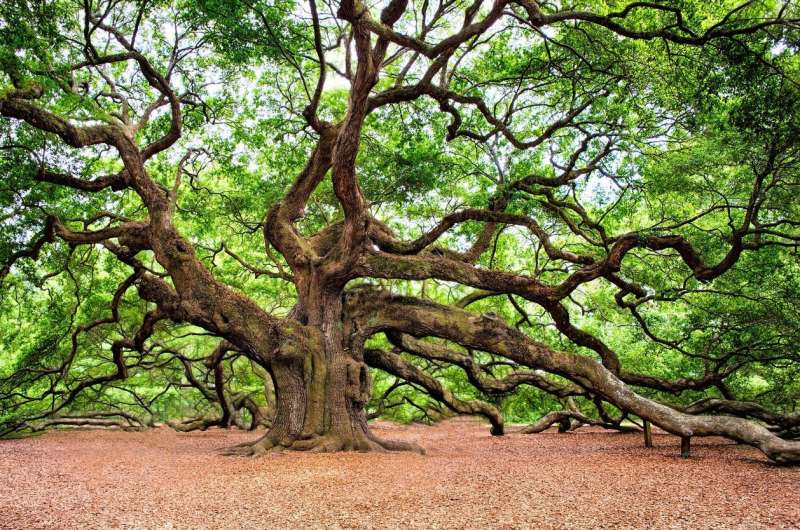Virginia seeing sudden surge in deaths of oak trees, foresters say

Around mid- to late summer, Adam Downing started receiving about double the number of calls he usually does about oak trees dying.
Downing is a forestry and natural resources agent with the Virginia Cooperative Extension, and he could tell this was a "pretty significant increase" in calls, mainly from homeowners. He'd even noticed one oak, which he passed each day on his drive to work, go from healthy to being removed. Particularly strange was how quickly the trees seemed to perish. "Generally, trees die slowly," he said. This "was a sudden browning of leaves. That was different. This is acute."
Although there aren't yet any hard numbers, tree experts around the commonwealth say they've seen more oaks dying this year than is typical. Most of them are white oaks in urban environments.
Trees die often for an array of reasons. But foresters say the trigger for this spate of oak mortalities appears to be an unusually wet rainy season starting last year followed by a very dry one this summer.
One chronic problem facing urban trees, Downing said, is soil compaction. That's when soil particles are so dense that pore space is reduced, leading to lower oxygen levels and poorer drainage.
Although compaction is not directly linked to rain inundation, soggy ground also suffers from low oxygen, compounding the problem.
"Trees die in compacted soils that aren't water logged," Downing said. "Then we just had so much rain starting last winter right through early spring, that a lot of the fine roots would've died because they didn't have any oxygen available to them. ... It's one stress followed by another."
These oak trees have been on the landscape in some cases for more than a century, he added, and have endured super wet and dry times. "But when you stack one on top of the other and they're already vulnerable because of the sites they're in," that becomes an issue.
Neil Clark, a forestry extension agent based in Southampton County who covers southeastern Virginia, started getting a "large surge" in calls about oak deaths in September. It wasn't possible for him to visit each one in person, he said, but it's clear they fit the pattern seen elsewhere in the state.
"It was somewhat all over," Clark said. The trees "are somewhat compromised so when other things come up, they're not as able to withstand the whole combination of factors."
However, Hampton Roads may not have seen as extreme a percentage of deaths, he said, because a lot of larger oaks were hammered and uprooted during Hurricanes Isabel and Irene in 2003 and 2011.
Clark added that we're in "a really low area of coastal plain" with a very high water table.
"When we have as much rain as we've had, it does tend to inundate the roots and kill of some of those finer roots. That makes it difficult, and then we have a drought."
But Downing said he's not too worried yet. Foresters need to learn more about the mechanics and precise reasons behind the white oak die-off, and he'll only feel real concern if this season's results become a yearslong pattern.
"Trees are such a long-lived thing, you don't get that concerned about upswings or downswings. You're in it for the long haul."
He noted that oak trees seem to have a certain allure for people, perhaps explaining why so many homeowners are calling.
"It's a big deal for people who lose a nice tree in their yard," Downing said. "My encouragement to folks is to plant another one. Oaks are one of the species that support so much biodiversity. I would hate for people to shy away from oaks for any reason."
©2019 The Virginian-Pilot (Norfolk, Va.)
Distributed by Tribune Content Agency, LLC.




















